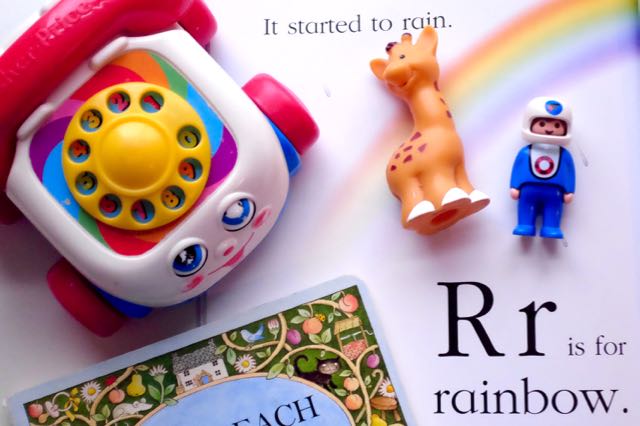
When you become a parent for the first time, life becomes punctuated by lots of little milestones. Reassuring little beacons in what can otherwise be an exhausting and confusing landscape.
But what happens when your baby fails to reach one of those milestones? Today I’d like to share my experiences of delayed speech in young children. I hope that this will prove informative and reassuring for anyone going through the same situation.
Both of my boys had delayed speech and neither spoke clearly until they were over four years old. These days you’d never know they’d struggled, but it was a long journey. Here’s what I learnt along the way.
Try not to compare your child to other children. Trust your instincts. I eagerly waited for my first son to start talking, and got sick of people asking me if he was. By about 18 months his lack of speech became more and more noticeable. I was worried. I’d never done this before and everyone else’s child seemed to be talking so easily, babbling ‘Mama’ and more without hesitation. It’s hard not to feel like you’re doing something wrong. Try, whenever possible, to focus on your child. Are they responsive and able to communicate their needs to you without speech? Are they happy and generally well? If so, there’s unlikely to be much wrong.
Speak to your health visitor, nursery teacher or GP. If your child is under the age of two it’s unlikely that anyone will be very concerned by delayed speech. But it’s worth talking to your health visitor. One of the most useful things they can help you with is to arrange a hearing test. When my eldest was two and half, we had his hearing tested and it was found to be completely normal. As part of his hearing test, he had to respond to questions through actions – like using building blocks and colours – and it was reassuring that there were no concerns about his understanding and communication skills, even though he couldn’t actually talk, other than through certain limited sounds.
What’s wrong with my child? Probably nothing. There was nothing physically wrong with either of my children, but for some reason they just found talking incredibly difficult. With my eldest it was a classic case of delayed speech, whilst my youngest displayed disordered speech – he struggled to make the correct sounds and everything became very muddled. You can’t force change, and must be very, very patient. Eventually, with time and support, they will get there. Jumping to conclusions isn’t particularly helpful, especially when it will make you even more worried. You’d be surprised by what is considering ‘normal’ by speech therapists in young children.
Go to a speech and language drop-in. Our local children’s centre runs a speech and language drop in session, where you can call in with your child and speak informally to a speech therapist. This is the most common route to go down and it’s the best way, in my area at least, to get your child into the system. I took both my boys to one of these sessions, and then received a referral to have then individually assessed by a speech and language therapist at our local hospital.
Accept any help that’s offered. My eldest son’s delayed speech suddenly began to improve in the summer before he started school – it was almost as if a switch had been pressed in his brain. It all started to come together incredibly quickly. My youngest son’s speech problems proved a little harder to solve. He’d actually talked much earlier than his brother, but was displaying worrying signs of his speech actually deteriorating, rather than progressing. By the time he was getting close to starting school I decided to accept every bit of help that was on offer. This involved a course for me (very useful), weekly group sessions, one-on-one sessions with a speech therapist and, finally, a week of intensive speech therapy in the summer holidays. It was hard work, but it worked. By the time he started school he had come on in leaps and bounds – a total transformation over about six months. The therapists really did seem to unlock something in his brain, and for that I’m truly thankful. All of this help was provided by the NHS.
Learn a few tricks from the experts. One really useful bit of advice I learnt from the speech therapists is when struggling to understand what your child is trying to tell you, try not to respond by saying ‘I don’t understand you’. Children with speech difficulties often get very frustrated when you don’t understand them and often don’t want to repeat things. Instead, say to them ‘I’m sorry, my ears don’t always work properly, can you tell me that again?’. Another useful approach I learnt was to use puppets or toys to help your child to recognise correct models of speech. Take two toys, one says the word incorrectly and the other correctly. Ask your child to tell you which toy is right. We really did find this very useful and fun.
Patience, patience and more patience. In most cases, it’s as simple as that. I’m not saying it’s easy, and they were many, many times when I just wanted to wave a magic wand for my boys. But in the end they both got there, and these days you’d never know there’d been a problem. This isn’t because I didn’t anything amazing – it was all about taking deep breaths, accepting help when it’s offered and letting them get there in their own time.
I have written this post based on my own personal experiences. I am not an expert and all children are different. I hope, though, that this may help some people who are going through a similar experience. I read a lot online during my evenings of worry, and I’d have liked to have read something like this.




Such a helpful post Lizzie! Both of my kiddies had / have delayed speech and oddly enough I’m finding it much more frustrating this time around with Georgie than I did with Michael. But it’s obviously a far more frustrating time for her, and I need to have more patience.
The staff at her Montessori are brilliant with her, and we’ve all seen a big improvement over the last few months.
I will definitely be using your tips over the summer when I don’t have the additional support from her Montessori keyworkers. Xxx
I’m so happy you found it useful! I think it must run in families – both of my boy’s granddads were apparently late talkers. Let me know if you want to ask any advice over the summer! x
Great to share, Lizzie. I so appreciated having you to talk to when we were going through similar things. Such an important lesson that all children develop on their own timetable.
Aw, thanks Jo! x
Thanks for sharing this Lizzie, it’s really helpful from my point of view. I have a just over two year old who it’s been clear for a long time was going to be delayed with his speech. He was very late to start babbling, and it was a long time before any words started to come. I’d say he now has about 50, but is only just attempting to put two words together (he’s done it maybe twice). I’ve always deep down thought that he’ll get there in his own time, but I’ve had conflicting reports from professionals as to the severity of it – the Health Visitor felt he’s very behind, but offered no help other than a hearing test (we have our third attempt at this tomorrow – he hates having the things put in his ear, so we’ve only had the all clear in one ear so far), while nursery feel he’s just on the tail end of where he should be for his age. We definitely struggle most with the frustration when I don’t understand what he wants, so those tips are really useful for me – I do have a habit of saying ‘I’m really sorry but I don’t know what you want’.
I do think that your first point is spot on. My instincts have always been that he’s fine and he’ll get there, and if I hadn’t heard from other people that he’s ‘behind’ then I’d never have known – he’s happy and healthy and is progressing all the time. But because I’m a worrier, and he’s my first, I’ve wasted a lot of time and energy thinking I’ve been doing something wrong. But every week now more words are coming, and they’re becoming clearer – I wish I’d trusted in my instincts more in the first place.
I’m so glad it was helpful Katy. It’s hard not to worry when it’s your first child. You’re definitely right to trust to instincts, you know your child best! Hope your next hearing test goes well x
What a fantastic blog, Lizzie! This deserves wider circulation. You are so right about the importance of patience. Great parenting! XXXXX
Thanks Ruth!